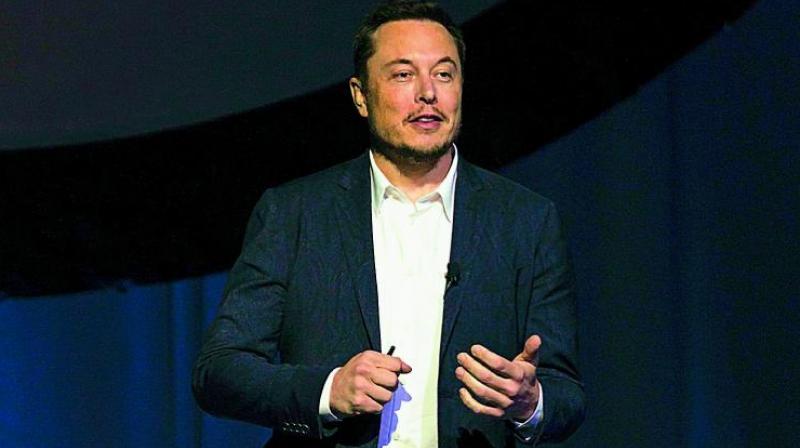Elon Musk on Tesla\'s self-driving capabilities
Musk has touted the electric car maker’s self-driving capabilities over the years, highlighting its semi-autonomous Autopilot system.

Tesla Inc revealed its self-driving plans during an investor day on April 22, with Chief Executive Elon Musk predicting the launch of an autonomous robotaxi service next year in some US markets.
Musk has touted the electric car maker’s self-driving capabilities over the years, highlighting its semi-autonomous Autopilot system.
Tesla began offering a feature described as “Full Self-Driving Capability” in 2016. The company instructs drivers to keep their hands on the wheel when those systems are engaged, sparking some criticism of the term.
Following are the comments made by Musk and Tesla related to the topic in the past few years, including during April 22, event: in the year 2019,
April 22 - Musk predicts that Tesla will have autonomous robotaxis without drivers in some US markets in 2020.
April 22 - Musk predicts that “probably two years from now we’ll make a car with no steering wheels or pedals.”
April 22 - Musk says that in 2020, Tesla will have “over a million cars with full self-driving, software, everything.”
April 22 - Musk says it is “financially insane to buy something other than a Tesla” today because Tesla is the only company to have a full self-driving suite of hardware.
April 15 – Musk says that buying a car that cannot upgrade to full self-driving is like “buying a horse instead of a car in 2019.”
April 11 - Tesla says that Autopilot, the company’s advanced driver assistance system, is now standard on all vehicles. April 3 - Tesla says it is making “significant progress” in development of its autonomous driving software and hardware, including the FSD (Full Self-Driving) computer, saying the computer is in production and will enable full-self driving through over-the-air software updates in future.
February 28 – In response to a media question whether it is problematic that Musk uses the term “full self-driving,” Musk replies: “I think we’re very clear when you buy the car what is meant by full self-driving. It means it’s feature complete. Feature complete requiring supervision ... There are really three steps: feature complete of full self-driving but requiring supervision, feature complete but not requiring supervision, feature complete not requiring supervision and regulators agree.”
In the year 2018, October 5 - Tesla introduces software version 9.0 with a number of features including 'Navigate on Autopilot' – intended to guide a car from a highway's on-ramp to off-ramp, including suggesting lane changes, navigating highway interchanges and taking exits that would still require driver supervision.
June 11 - Musk tweets that Tesla’s Autopilot driver assistance system will get full self-driving features following a software upgrade in August.
May 23 - Two US consumer advocacy groups urge the Federal Trade Commission to investigate Tesla’s “deceptive and misleading” use of the name Autopilot for its assisted-driving technology.
February 2018 - Musk says Tesla can do a coast-to-coast autonomous drive in three months, six months at most.
October 19 - Musk says he expects that by the end of 2017 a Tesla would be able to drive in full autonomous mode from Los Angeles to New York "without the need for a single touch" on the wheel.
October 2016 - Tesla begins to sell a “Full Self-Driving Capability” option in its vehicles for USD 3,000, on top of the USD 5,000 price for “Enhanced Autopilot.” Musk says full self-driving features will be rolled out in future via over-the-air updates when available. The option was removed in October 2018 and then reinstated in February 2019.
October 2016 – Musk says all new Teslas built have the hardware required for full self-driving.
October 2015 – Tesla launches an advanced driver assistance system called Autopilot, with Musk cautioning that drivers should keep their hand on the wheel.

